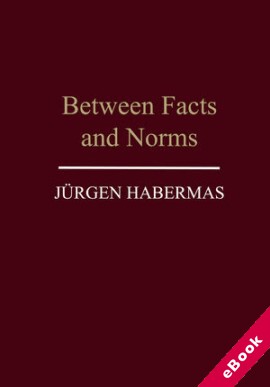
The device(s) you use to access the eBook content must be authorized with an Adobe ID before you download the product otherwise it will fail to register correctly.
For further information see https://www.wildy.com/ebook-formats
Once the order is confirmed an automated e-mail will be sent to you to allow you to download the eBook.
All eBooks are supplied firm sale and cannot be returned. If you believe there is a fault with your eBook then contact us on ebooks@wildy.com and we will help in resolving the issue. This does not affect your statutory rights.
In Between Facts and Norms Habermas works out the legal and political implications of his theoretical approach, bringing to fruition the project announced more than three decades ago in The Structural Transformation of the Public Sphere. Between Facts and Norms is a major contribution to current debates on the role of law and the prospects for the development of democracy in contemporary societies.
Habermas develops a distinctive account of the nature of law, arguing that law is characterized by an internal tension between factual and normative aspects. He links this account to a broader argument concerning the formation of the modern constitutional state and the role of democratic deliberation as a means of securing the legitimacy of legal norms in complex, pluralistic societies.
Habermas develops a proceduralist conception of democracy which emphasizes the importance of citizens organizing themselves in informal associations and voicing their concerns in a variety of public settings. If the formal processes of law-making in modern societies are to sustain their legitimacy, they must be capable of taking account of the concerns of ordinary citizens.In our complex, pluralistic societies, the legitimacy of political decision-making processes depends on a robust civil society and a vibrant public sphere. Between Facts and Norms is an outstanding work by one the most important social and political thinkers of our time. It will be a focal point of debate for many years to come in the fields of social and political theory, sociology, politics and philosophy.